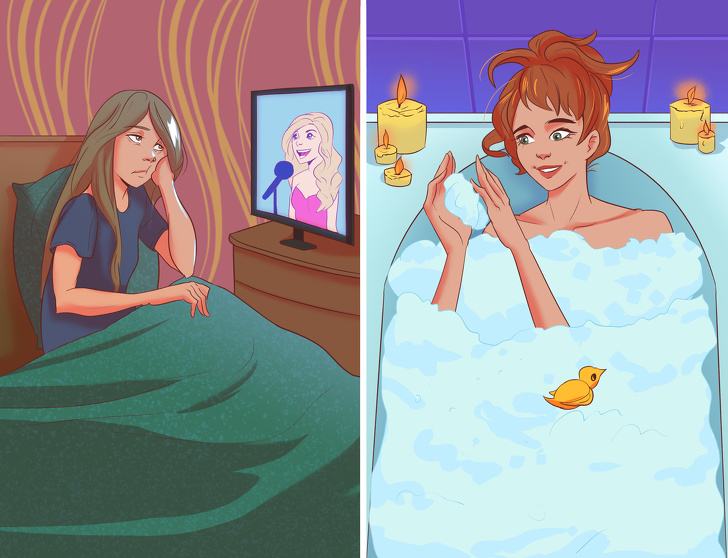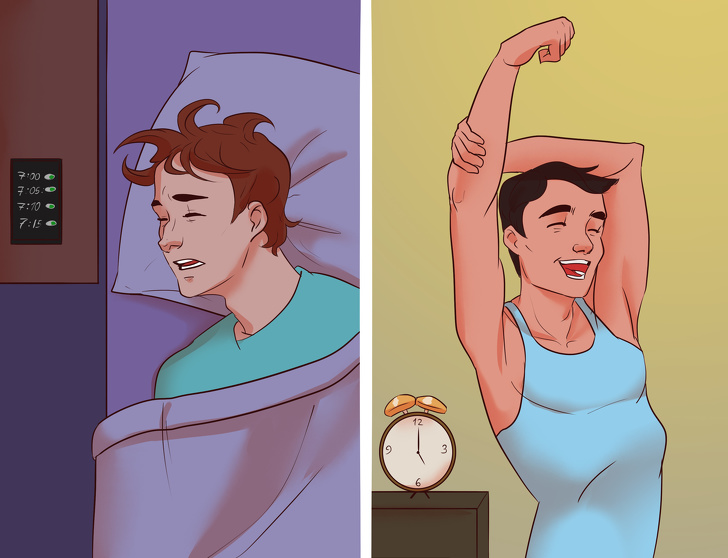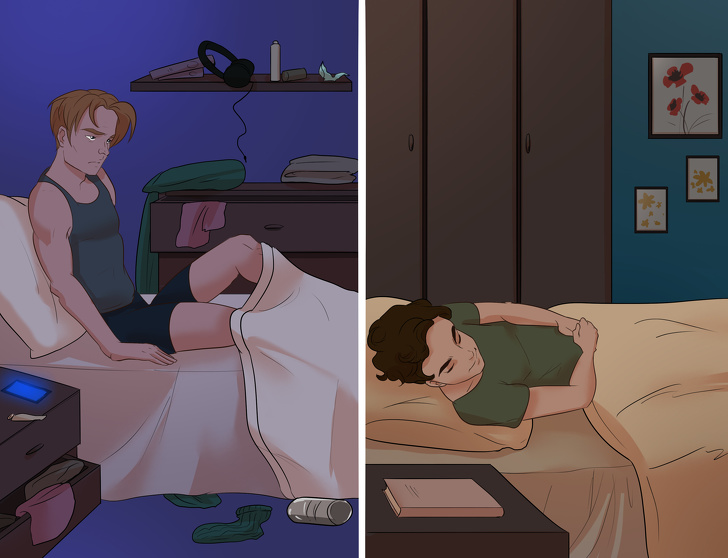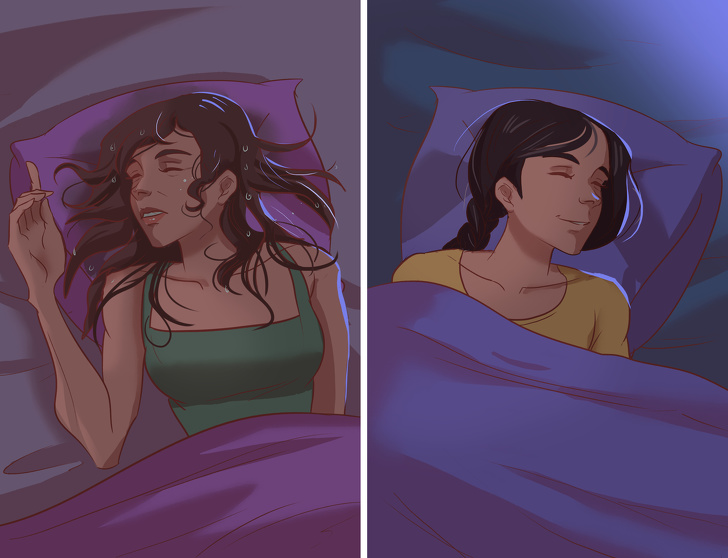If it takes you longer than 30 minutes to fall asleep after going to bed or if you wake up and stay awake for more than 20 minutes in the middle of the night, you need to improve the quality of your sleep. The best way to do that, is to make sure your daily habits do not interfere with your sleep needs.
Here, at ViralSection, we’ve collected a series of tips that can help you develop a regular sleep pattern and improve your sleep quality.
1. Using screens before sleeping

Your brain needs restful activities before going to bed to prepare for a good night’s sleep. TV often stimulates your brain way too much, which might make you feel anxious without you even realizing it. blue light emissions block your melatonin production, the hormone that’s responsible for sleep. This makes it harder for you to fall into a deep sleep.
Instead: Turn off your phone (or any other screen) 30 minutes before going to bed and read a book or take a bath to relax. If you wear glasses, you can also add a blue light-blocking feature to your glasses to guard against blue light.
2. Not having a stable sleeping pattern

The circadian rhythm, your biological clock, controls the amount of hours we sleep every day as well as when we sleep and wake up. Messing with its cycles even just once can have a great impact on your sleep quality for days. This doesn’t mean that you have to wake up at 7AM every day. Night-owl persons naturally sleep after midnight and wake up later. This accounts for about 20% of the population.
Instead: Find out what your pattern is and stick to it. If you’re out late at night or you have to wake up very early in the morning, try taking a nap during the day and then going to sleep at your regular hour.
3. Overeating before bed

If your biggest meal takes place after 3 PM it means you are a late eater. Several studies have shown that there’s a link between late eating and acid reflux and indigestion which in turn affects your sleep quality. Late eating is also related to weight-loss difficulty, and obesity can cause sleep apnea and other sleeping disorders.
Instead: Avoid eating big meals 3 hours before going to bed. Deserts and junk foods are not to be snacked in the evening. Drink chamomille tea without sugar.
4. Ignoring your caffeine curfew

Caffeine tricks your body into believing it’s not tired and while the effect might wear off after a few hours, your body actually still has a lot of caffeine to deal with, even for the next 10 hours after your espresso. Unfortunately, a lot of people is unaware that coffee isn’t the only caffeine packed drink. Chocolate, energy drinks, most teas and sodas are high caffeine providers. Even hot cocoa contains enough caffeine to prevent from sleeping soundly.
Instead: Limit your caffeine consumption and try only drinking it in the morning. The less you drink, the better it kicks in when you actually do! So it’s a win-win situation.
5. Snoozing

There’s been a lot of buzz around the fact that snoozing is bad for your health. According to this expert, snoozing is not necessarily unhealthy, but it the 9-minute extra sleep certainly do not do the trick. In fact, snoozing increases your cortisol levels, also known as the stress hormone.
Instead: Think of waking up as a ritual. You need to be able to take the time and wake in a relaxed way to start your days with low levels of stress. Calculate your sleep cycles and set your alarm accordingly.
6. Having a bad diet

According to this study, a lower consuption of vitamins A, B1, D, magnesium, calcium and zinc is related to a poor sleep. This other study shows how a high calory diet relates to poor sleep whereas a diet that focuses on increasing fiber consuption can favor a better sleep in the long run.
Instead: Eat more fruits and vegetables. Choose whole grains and rice and avoid junk or processed food with a high sugar content.
7. Not excercising

Surprisingly, not a lot of studies have been conducted to prove whether insomnia and lack of excercise are related. The ones performed suggest that moderate-intensity aerobic exercise reduced the time it took participants to fall asleep, but overall, only after 24 weeks of exercise, adults with insomnia fell asleep more quickly, slept slightly longer, and had better sleep quality than before they began exercising.
Instead: Excercise moderately every day. A 30-minute walk already counts as a moderately intense aerobic excercise. You can also try using public transport or bike to work instead of taking car.
8. Having a messy bedroom

Having a sleep friendly bedroom is important for both children and adults. In both cases, having a cluttered room can create stress according to the study. For adults, clothes or electronic equipment laying around can stimulate them thus preventing them from sleeping.
Instead: Avoid leaving work related papers, books or electronics in your room. Having white noise creates a restful atmosphere.
Bonus: Is it good for your health to sleep with wet hair?

In 2012, Turkish scientists carried out a study to verify whether sleeping with wet hair during cold weather actually does make you sick. It turns out that, as we mentioned before, since wet hair makes you feel cold, your sinuses react by secreting mucus, as if you actually had a cold. This mucus accumulation very often results in an infection.
Have you ever experienced trouble sleeping? Which daily habits did you have that affected you? Share your insights with us in the comments!





















